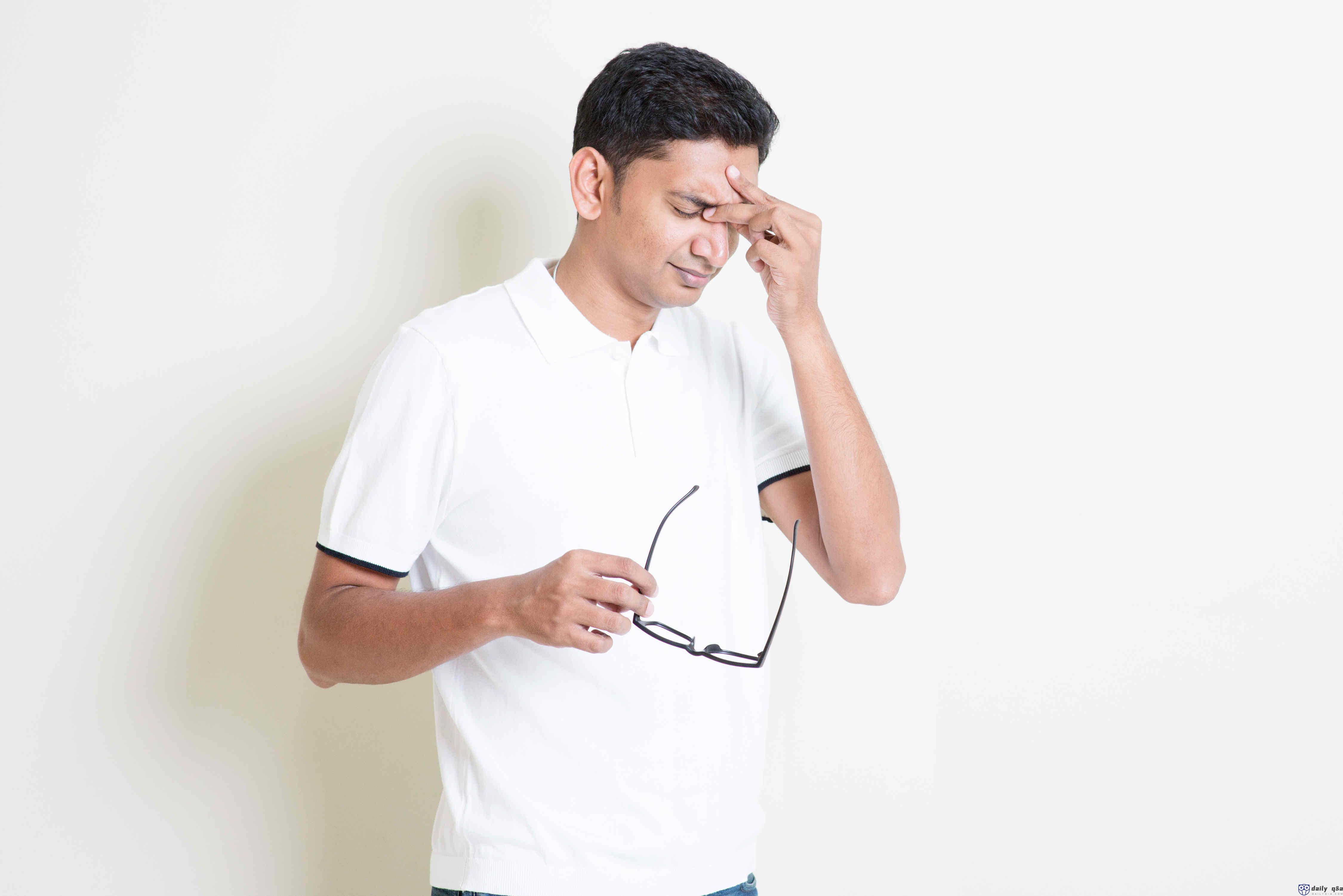Dizziness, what went wrong in the end! Pay special attention to the elderly in the family
1. What is vertigo?
Vertigo occurs suddenly. It is an illusion of movement to oneself or external objects induced without external stimuli. When vertigo occurs, you can feel the surrounding objects, houses, trees, or the human body rotating and seeing. Objects can float up and down and rotate. When dizzy, it is often accompanied by nausea, vomiting, profuse sweating, heart discomfort, and fear. Often due to the onset of dizziness, it can cause falls, and secondary fractures and trauma, so we are dizzy. At the time of the attack, you should understand some of your related symptoms

2. What are the hazards when vertigo attacks?
The onset of vertigo is without warning
1. Often during the onset of vertigo, the patient may have a fall, which will cause secondary head injuries or fractures
2. The elderly dizziness is accompanied by nausea and vomiting, so they often have to stay in bed. Forced bed rest may cause secondary lung infection or thrombosis in the lower limbs.
3, dizziness, vomiting, vomiting can cause lung fall, falling pneumonia or may cause suffocation
4. The onset of vertigo has a sense of fear, so it will seriously cause the patient's psychological obstacles and bring harm to the patient's life and work.
3. What diseases does vertigo include?
Vertigo is a symptom rather than a disease. The departments involved in vertigo include neurology, cardiovascular, orthopedics, psychosomatic medicine, and otolaryngology.
Vertigo is divided into central and peripheral vertigo
Central vertigo is mainly cerebrovascular disease, especially cerebral infarction or cerebral hemorrhage, which is more harmful to patients, followed by cerebral arteriosclerosis, myocardial infarction, and when myocardial infarction, some patients are atypical and show dizziness and vertigo. Instead of showing discomfort in the precordial area, central vertigo also includes vestibular migraine and vestibular paroxysms, as well as central tumors or inflammation, or other desheathing diseases, caused by vertigo.
Peripheral vertigo is mainly based on ear diseases, the common ones are otolith syndrome, Meniere's syndrome, sudden deafness, vestibular neuron disease, labyrinthitis, etc.
Orthopedics is mainly due to cervical vertigo caused by cervical spondylosis
The main common in psychosomatic medicine is neonatal abnormalities, and chronic persistent, sensory subjective dizziness
Fourth, which disease is the most worried about vertigo
Central vertigo is very worrying to everyone, especially the ischemia of the posterior circulation, which is usually referred to as brain stem and cerebellar infarction. If you have high blood pressure, diabetes or hyperlipidemia, you will experience vertigo on a certain day. The seizures are repeated many times per minute, and it can be repeated several times an hour, and even lasts more than an hour. It does not relieve within 24 hours. Then this time may be the cause of the concurrent infarction of the posterior circulation, especially the cerebellum and brain Dry infarction, infarction is called malignant vertigo, and malignant vertigo will endanger the patient’s life and may cause death
5. Causes of vertigo in the elderly
1. The most common is cerebrovascular disease, especially brain stem and cerebellar infarction
2. Heart disease such as coronary heart disease
3. Cerebral atherosclerosis
4. High blood pressure or low blood pressure
5. Vestibular neuronitis, Meniere's syndrome, and even some patients who take sedative and sleeping pills for a long time can cause vertigo attacks caused by drugs. Also, pay attention to whether there are dizziness and vertigo attacks caused by anemia. You should go to the hospital in time. See a doctor, don’t just think of yourself at home and give some incorrect treatment

6. Why do some people experience dizziness after moving their upper limbs?
This state will appear when the left subclavian artery stenosis occurs and the symptoms of stealing blood occur, because when the upper limb is moved, the blood supply required increases. When the left subclavian artery is stenosis, the vertebrobasilar artery must be taken from the vertebrobasilar artery. Drain blood vessels to the upper extremities, so vertigo can occur when moving
How to find the phenomenon of blood stealing from the left subclavian artery, you can detect the pulse of both upper limbs or measure the blood pressure of both sides. If the abnormal pulse is weakened or the systolic blood pressure difference between the two sides is more than 20 mmHg, you may suffer Cone-basal artery stolenemia due to stenosis of the left subclavian artery, it is recommended to go to the hospital for imaging examination or angiography, Doppler examination to rule out the stenosis of the subclavian artery
7. Causes of dizziness caused by turning over and getting up
The reason may be caused by otoliths. The characteristics of otolith syndrome are recurring and obviously related to the position, especially when you turn your head and get up, there is nausea and vomiting, which can be understood by the position identification experiment. The characteristics of vertigo, the onset of vertigo can be significantly improved by the repositioning of the first shot or the revolving chair, which is often caused by otoliths.
8. Will cervical spondylosis definitely cause dizziness?
With age, the bone proliferation of the cervical spine degenerates and cervical spondylosis appears, but not every patient will have symptoms of vertigo, and only when cervical spondylosis compresses the vertebral artery and appears ischemic symptoms, will the symptoms of vertigo appear. It cannot be said blindly that it is caused by cervical spondylosis and has no direct correlation with cervical spondylosis. Imaging examinations must be carried out to confirm the compression of blood vessels.
Nine, how to see a doctor for vertigo scientifically
1. It is very important to provide a medical history. 80% of dizzy patients find some causes of dizziness through medical history inquiry and systematic physical examination.
2. The patient should describe in detail the cause of the vertigo attack, how long the attack lasts, what symptoms are associated with the vertigo, nausea, vomiting, and the nature of the dizziness. Doctors, make accurate judgments and accurate treatments

10. What is the key to vertigo treatment
The key to the treatment of vertigo is to find the cause of the patient, and give different treatments for different causes
1. Infarction of the posterior circulation. Infarction of the cerebellar stem, thrombolytic treatment should be taken within three hours.
2. Vestibular migraine, which should be prevented and treated with drugs for headache
3. Vestibular paroxysmal, mainly carbamazepine treatment
4. Vestibular neuronitis, mainly hormone-related treatment
Therefore, it is necessary to timely and accurately diagnose the cause of the disease, and then the corresponding cause of treatment can be given to better improve the symptoms.
11. What to do if vertigo attacks
1. Please do not panic or have vertigo attacks. Although there are obvious dizziness, nausea, vomiting, and fear, you know that most of the diseases of vertigo are caused by peripheral vertigo. Although peripheral vertigo has severe symptoms, it does not affect life, as long as it is appropriate Treatment, most of the prognosis is relatively good
2. If the so-called malignant dizziness occurs, that is, the patient's dizziness, nausea and vomiting cannot be relieved, or cannot be taken lightly, you should go to the hospital in time to rule out the malignant dizziness due to posterior circulatory infarction, and get treatment as much as possible
12. What problems should be paid attention to at home when suffering from dizziness
1. Stay in bed as much as possible, turn your head less, and keep the light in the home environment as dark as possible
2. To reduce visits, reduce visits by guests, and talk to patients less
3. Try to lie on the side as much as possible, because vomiting may cause choking of food and difficulty breathing
4. Avoid mental stress, combine work and rest, and carry out some balance-related training to improve the ability of balance
13. How to avoid detours in the diagnosis and treatment of dizzy patients
When vertigo attacks, there are more subjective symptoms and fewer objective signs. Different hospitals have different regions, and different doctors have different diagnosis and treatment methods and opinions on vertigo. Many hospitals have opened vertigo specialist clinics or neurology departments. , Otorhinolaryngology, New Life Medicine Department, a joint clinic. Patients who suffer from dizziness are advised to go to these specialized clinics or joint clinics, which can solve your dizziness problem in a one-stop manner.
Copyright notice
This article only represents the author's point of view, not the standpoint of this station.
This article is authorized by the author and cannot be reproduced without permission.